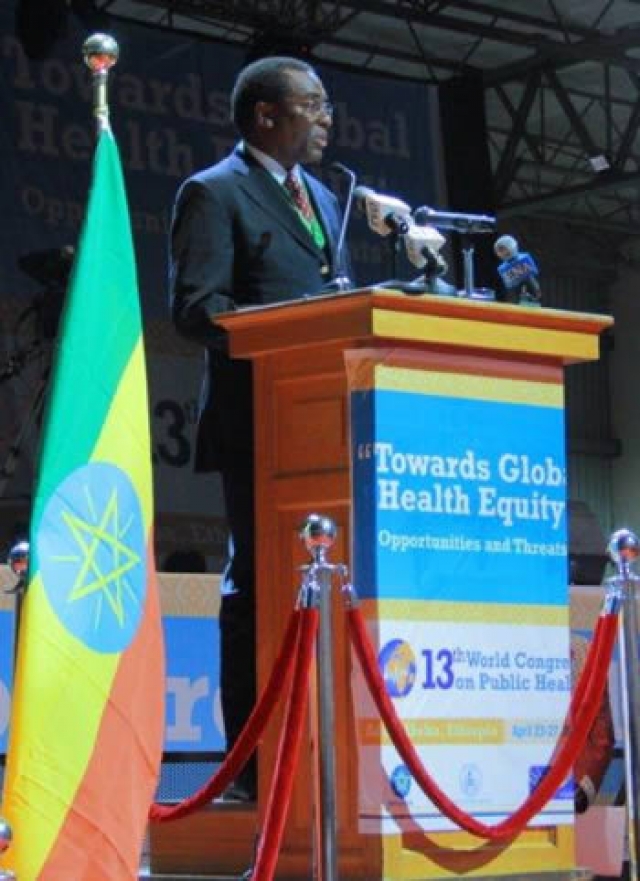Dr Sambo Calls for Renewed Actions for Health Systems to Address Inequities
 Addis Ababa, 23 April 2012 -- The World Health Organization (WHO) Regional Director for Africa, Dr Luis Sambo, on Monday (23 April) called for sounder health policies underpinned by primary health care values and principles to address inequities in health.
Addis Ababa, 23 April 2012 -- The World Health Organization (WHO) Regional Director for Africa, Dr Luis Sambo, on Monday (23 April) called for sounder health policies underpinned by primary health care values and principles to address inequities in health.
He made the call whilst addressing the 13th World Congress on Public Health which is taking place from 23 to 27, April 2012, in Addis Ababa, Ethiopia, with the theme; “Towards Global Health Equity: Opportunities and Threats” in Addis Ababa. The Congress has attracted over 4000 participants from 116 countries.
The event was officially opened by His Excellency Prime Minister Meles Zanewi, Honourable Minister of Health, Dr Tedros Adhanom, Senior Officials of the Government of Ethiopia, Members of the Diplomatic corps, Professor Ulrich Laaser, President of World Federation of Public Health Associations, Dr Tewabech Bishaw, President of Ethiopian Public Health Association, the Global Public Health Communities, Scientists and Stakeholders.
Dr Sambo stated that “Humankind has made remarkable progress in advancing public health and improving people’s health since the dawning of civilization. During the last 100 years, the application of scientific and technological advancements has accelerated communicable disease control in the industrialized world. He, however, stressed that, in addition to new health technologies, “These successes could only be achieved with progress in social and economic development that improved major determinants of health such as environment, housing, food, nutrition, education, water supply, hygiene and sanitation.”
Current global health inequities challenge all countries in their pursuit to achieve the Millennium Development Goals. Dr Sambo underscored “The need to immediately address the uneven distribution of health across countries, within countries, between rich and poor people, men and women and the differences between rural and urban areas in coverage of essential health services.”
The huge disease burden, disabilities and premature deaths due to communicable and non-communicable disease, the unfinished agenda of reducing infant and maternal mortality, and addressing emerging and re -emerging diseases were referred as the current public health concerns globally.
Dr Sambo underscored some new public health challenges of significance to the African Region from consequences of climate changes, for example; and warned of the recent droughts in the horn of Africa and the Sahel that have resulted in the negative effects on food security, nutrition and health. These challenges create increased demand on the already stretched capacity of existing health systems.
Dr Sambo closed by articulating the need for strengthening intersectoral and multidisciplinary actions and partnerships to tackle determinants of health. He called for reforms to redesign health systems in which public health is a shared responsibility that recognizes the important role of individuals and communities.
He highlighted the crucial role of public health associations and finally reiterated WHO’s continued commitment to promoting public health polices based on scientific evidence. The World Health Organization (WHO) Regional Director for Africa then expressed deep satisfactions of the recent creation of the African Federation of Public Health Associations.


